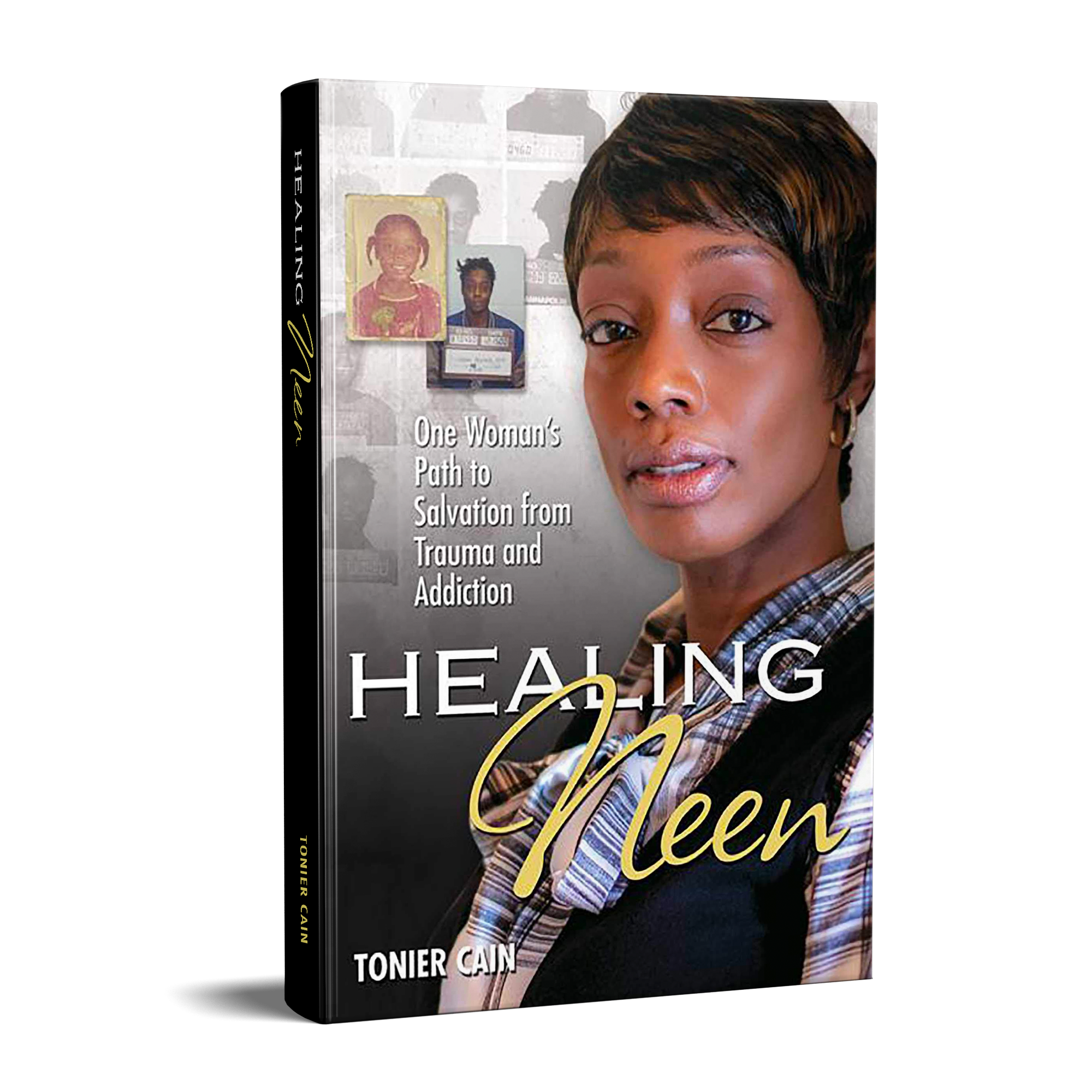
By Marc W. Polite
Good afternoon, my readers. This week’s author profile brings us Tonier Cain. Tonier is the author of “Healing Neen”, a book detailing her healing journey. Born and raised in Annapolis, Maryland, Tonier is also a motivational speaker, and a practitioner of trauma-informed care.
Polite On Society: Who is Tonier Cain? Can you tell us a little about yourself?
Tonier Cain: I am a trauma survivor who endured nearly three decades of abuse. My experiences include childhood neglect, sexual abuse, domestic violence, and homelessness. I faced abuse not only from community members but also from those who were supposed to help me in the care system.
Today, I am a trauma-informed care expert, author, international speaker, and filmmaker. After years of failed treatments and time spent in and out of prison, it was a trauma-informed care program that finally helped me connect my early childhood trauma to my struggles as an adult.
Making these connections between my trauma and the root causes of my challenges was the first step toward healing and recovery.
From there, I worked my way up in the trauma-informed care community and eventually served as the team leader for the National Center for Trauma-Informed Care under the Substance Abuse and Mental Health Services Administration (SAMHSA). In that role, I traveled to every state in the USA to share my story of addiction and recovery, raising awareness about how trauma affects individuals and the necessity of trauma-specific treatment.
I am now the CEO and founder of Tonier Cain International. Through my company, I collaborate with medical and mental health professionals, law enforcement, and government agencies to raise awareness and provide training in trauma-informed care.
My non-profit organization, Neen Cares Inc., helps individuals and families dealing with substance abuse, homelessness, and legal issues stemming from early trauma.
Additionally, I authored the autobiography “Healing Neen” and produced a documentary film of the same name, which shares my journey through trauma, recovery, and as an advocate. I also operate Purposeful Entertainment, my production company focused on sharing inspiring stories for TV and film. I also created the skincare line “Hope by Tonier Cain” to restore beauty and hope for trauma survivors.
POS: Healing is such a difficult process. What inspired you to be so transparent in sharing your journey?
TC: Healing can be incredibly challenging and may sometimes feel like it lasts forever. The title of my book includes “Healing” because it is a lifelong journey. While there are triggers and obstacles to recovery, and trauma is never truly forgotten, we can learn to cope in healthier ways.
I share my story to remind those who may feel ready to give up on themselves or others that there is always hope, no matter the circumstances. By sharing my experiences, I hope to support those who feel lost or alone.
Additionally, it is crucial to advocate for trauma-informed care training as a standard practice within the medical, mental health, and legal communities.

POS: For our audience, can you explain the difference between therapy and trauma-informed care?
TC: Therapy encompasses a variety of treatments aimed at addressing mental, emotional, and behavioral issues, including concerns such as anxiety, depression, relationship problems, and grief. The treatment methods tend to be more standardized, utilizing modalities like cognitive-behavioral therapy (CBT), psychoanalysis, and interpersonal therapy.
Trauma-informed care acknowledges the widespread impact of trauma on individuals. It focuses on understanding what individuals have experienced rather than just what is perceived as “wrong” with them. This approach recognizes that there is no “one size fits all” solution for treating trauma. Trauma-informed care emphasizes the importance of safety, trust, and empowerment for those who have experienced trauma, and it takes into account how trauma can influence behavior, aiming to prevent actions that may re-traumatize individuals.
POS: If there is one key lesson you would want readers to take away from “Healing Neen”, what would it be?
TC: I want readers to know that no one has the right to deem anyone else “hopeless,” no matter what the record says. I was arrested over sixty-six times, drug-addicted, and misdiagnosed as bipolar and schizophrenic. With that record and those labels, it was easy to be written off for years, and my own understanding of how trauma had impacted me was limited.
I was told it was my fault and that there was something wrong with me all of my life. That was the professional conclusion until I was connected with the proper support and treatment that looked at my history of early sexual trauma, alcoholism in the home, poverty, violence, family loss, and foster care; that was the truth of my story, and trauma-informed care helped connect those dots into a complete picture of what happened to me as a person, not a statistic.
How or can we book Tonier Cain to speak in
Blytheville, Arkansas this year?
Good evening, Linda. You may reach out to Tonier Cain for booking at:
https://www.toniercain.com/